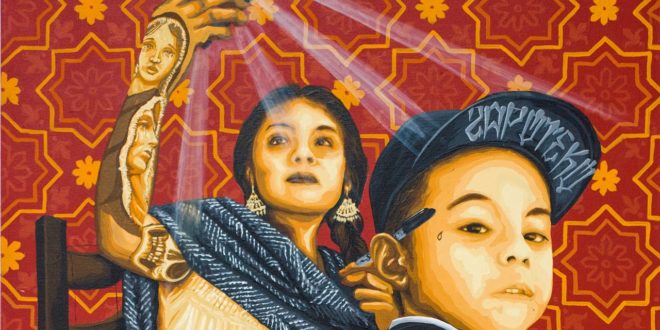November is Native American Heritage Month, an ideal time to remember the historical, political, intellectual, and legal contributions of Indigenous peoples in North America and specifically in the United States.
Tribal nations entered into nation-to-nation treaty agreements with the newly formed United States in “perpetual peace and friendship” from the late 1700s through the late 1800s. This sovereign-to-sovereign relationship based on treaty partnerships carries the force of law through the Supremacy Clause, found in Article VI of the U.S. Constitution, which guarantees that treaties supersede all contrary state laws. Treaty partnerships have ongoing vitality and the obligations they created are carried forward today through Executive Orders, acts of Congress, and U.S. Supreme Court decisions.
Politically and intellectually, tribal nation leaders engaged with the founders of the United States and demonstrated the confederacy/alliance model of governance. This was a sharp break from the monarchy-based systems of European nations. In fact, the Haudenosaunee Confederacy, which consisted of an alliance of six distinct tribal nations that had already existed for more than a century, served as a model for Benjamin Franklin when he advocated that English colonies become united as states.
Tribal nations have also contributed to the legal systems of the United States by demonstrating the effectiveness of peacemaking for dispute resolution, as well as other concepts derived from Indigenous legal traditions. Dispute resolution in tribal nations has influenced the development of restorative justice processes within the United States – from mediation practices to specialized courts, such as wellness courts, drug courts, and others where supports are offered to address the humanity of the person before the court. Indigenous legal traditions include concepts from expanded versions of the family to include grandparents and aunts and uncles in the care of children, to relationships with the environment requiring sustainable regulations, to the idea of the servant leader responsible to the governed and humble in furthering common goals of the society.
We continue to see Native American legal concepts in the operation of the eleven tribal nations in Minnesota, all with tribal court systems. At Mitchell Hamline School of Law, we acknowledge the land where the law school is located in the following way:
“We acknowledge that we are in the Indigenous homelands of the Dakota Oyate also known as the Sioux Nation. The Dakota Oyate is comprised of the Sisseton, Wahpeton, Wahpekute, and Mdewakanton peoples. Four federally recognized Dakota Tribal Nations remain in this area: Lower Sioux Indian Community, Prairie Island Indian Community, Shakopee Mdewakanton Sioux Community, and the Upper Sioux Indian Community.
This region is also shared territory with the Anishinaabe also known as the Ojibwe or Chippewa. Seven federally recognized Ojibwe Tribal Nations remain in this area: Bois Forte Band of Lake Superior Chippewa, Fond du Lac Band of Lake Superior Chippewa, Grand Portage Band of Lake Superior Chippewa, Leech Lake Band of Ojibwe, Mille Lacs Band of Ojibwe, Red Lake Nation and White Earth Nation. We acknowledge the Ho-Chunk Nation and their historic relationship to this region. We appreciate the ongoing stewardship, spiritual connections and lifeways developed in these homelands upon which this law school sits.
We also acknowledge and thank the diverse Indigenous peoples whose footsteps have marked this territory and have joined into community here in this region.” (Native American Law Student Association Land Acknowledgment 2019).”
Countless men and women Native American leaders have made a difference throughout this country for time immemorial. We have notable alumni from Mitchell Hamline School of Law who are Native American, including Minnesota’s first Indigenous state Supreme Court justice. We also have the well-established Native American Law and Sovereignty Institute with co-directors and professors Angelique EagleWoman (Sisseton-Wahpeton Dakota Oyate) and Colette Routel, educating the next generation of Native American lawyers and allies.













